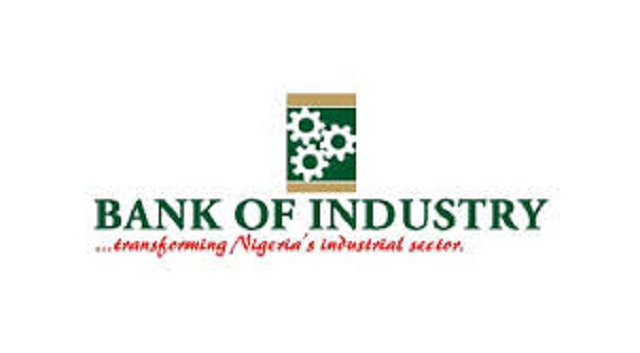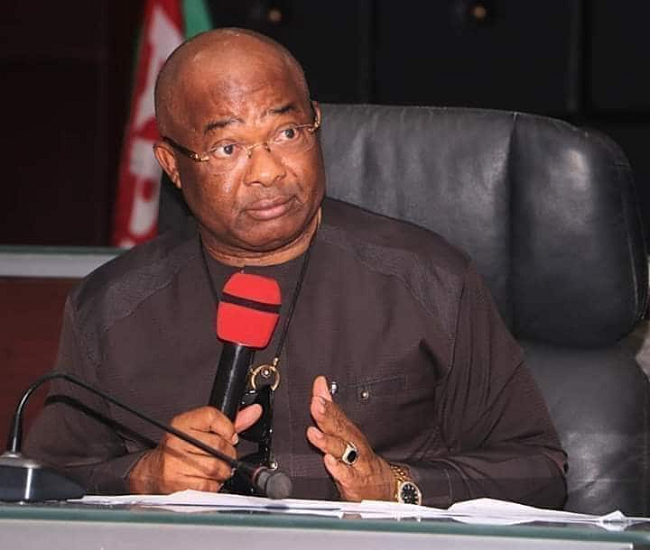The Nigerian Federal Government has pushed the Bank of Industry (BOI) and other Development Finance Institutions (DFIs) to allocate sufficient funds to the country’s developing economic sectors.
The call was made on Thursday in Abuja at the 4th Annual General Assembly of the Association of Nigerian Development Finance Institutions (ANDFI) by Minister of Industry, Trade, and Investment Doris Uzoka-Anite.
“Financing Emerging Sectors for Growth: The Role of Development Finance Institutions” was the event’s theme.
The Chairman of the BOI Shareholders Committee, Mohammed Bala, spoke on behalf of Uzoka-Anite, who stated that the key to maximizing the potential for economic growth in the nation was to focus on the emerging sectors.
She identified some of the emerging sectors as renewable energy, biotechnology, information technology, sustainable agriculture, and culture, among others. According to her, emerging sectors represent the future of the global economy but lack sufficient evidence to create the needed impact in Nigeria.
“These sectors, if well-funded, are poised to generate sufficient economic value and address some of the most pressing challenges of our time.
“These include climate change, infrastructure, food security, and health, which the Bola Tinubu-led administration is confronting.
“We are aware that these sectors often face unique challenges such as high initial investment costs, long development timelines, and the inherent risks associated with pioneering new technologies and business models.
“This is why traditional financial institutions are often reluctant to invest in these sectors due to passive risks and uncertain returns.”
Uzoka-Anite said that the World Bank has placed Nigeria’s infrastructure deficit at 30 percent of its Gross Domestic Product (GDP), which falls short of the bank’s international benchmark of 70 percent. The minister added that the bank had projected that Nigeria must invest three trillion dollars to reduce its infrastructure deficit. This, according to her, is attainable if the DFIs in Nigeria have enough confidence in the economy to inject the necessary funds.
She acknowledged the institution’s role in fostering an enabling environment for industries and the economy to grow. She urges stakeholders, particularly the government, private sector, and development partners at the sub-national level, to collaborate closely to harness the opportunities presented by emerging sectors.
“Together, we can build a more prosperous, innovative, and resilient economy that will be the envy of other countries.
“This is because a well-developed financial sector is crucial for attaining sustainable and balanced growth, as well as ease of doing business,” she said.
Earlier, BOI Managing Director, Dr. Olasupo Olusi, also noted that DFIs significantly ensured sustainable socio-economic development globally. Olusi urged ANDFI members to collaborate by combining their expertise, resources, and networks to unlock transformative projects.
“The government of President Tinubu has embarked on a renewed agenda that sets a blueprint for driving Nigeria towards a trillion-dollar economy.
“Cooperation between the federal and subnational governments, as well as collaboration with the private sector, is critical to this objective,” Olusi said.
In his keynote address, delivered virtually, Prof. Kevin Urama, Chief Economist and Vice President of the African Development Bank, equally described DFIs as critical to the continent’s development. According to him, 10 out of the 20 fastest-growing economies in the world are from Africa.
“This underscored the need for DFIs to provide adequate funding to emerging sectors of the economy.
“The era of cheap money is over, and the time for domestic and regional finance institutions to play a bigger role is now.
“Nigeria needs to invest in renewables, agriculture, manufacturing, infrastructure, and energy.
“ANDFI needs to look at each of these sectors, and investing in energy as a priority is a good way to go; investing in agriculture is vital; and manufacturing and industrialization are also key areas of focus,” Urama said.
NAN reports that the event was attended by the Senior Special Assistant to the President on Job Creation and Micro, Small, and Medium Enterprises (MSMEs), Temitola Johnson, and the BOI Chief Economist, Dr. Rislanudeen Muhammad, among others.















